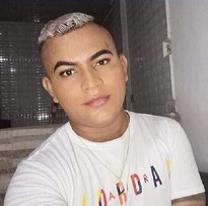This month, we update you on developments in Colombia, Venezuela, Brazil, Chile, Peru, Ecuador and Bolivia. There is a new Urgent Action on behalf of a Colombian journalist under threat. In Venezuela, attacks continue against Human Rights Defenders. In Brazil, mass killings of black residents continue in Rio de Janeiro and there is concern about government policies to strip indigenous communities of their autonomy. An imminent visit by the President of Chile provides an opportunity to lobby the British Government to press for justice for those killed and injured in protests that were repressed by the authorities. Indigenous communities in Peru are under threat from illegal land grabbers. Ecuador has held its first National Day against Sexual Violence in Schools. An independent investigation has found that the recent interim government in Bolivia persecuted opponents with systematic torture and summary executions by security forces.
COLOMBIA

Amnesty International has issued a new Urgent Action on behalf of the journalist Jose Alberto Tejeda. Since 28 April, Tejeda has faced more than 14 security incidents including surveillance by unidentified men and a security forces official who threatened to kill him. His work has been crucial in denouncing human rights violations and crimes under international law by the security forces during the Colombian National Strike in the city of Cali. We urge the National Protection Unit of the Ministry of Interior to provide him with appropriate protection measures with his agreement.
Colombia’s Prosecutor General’s Office is seeking to indict General Mario Montoya for his role in the murders of civilians who were then disguised as guerrillas killed in combat. Colombia’s Special Jurisdiction for Peace has found that at least 6,402 civilians were murdered by the army between 2002 and 2008 in these circumstances, known as ‘false positives’. The General is the highest-ranking officer to be directly implicated in the killings.
Peace Brigades International reports on anti-personnel mines located near the indigenous community of Chageradó in the department of Antioquia. ‘The territory of the municipality of Murindó, and especially its two indigenous reservations, is now deeply affected by the installation of land mines by different armed actors. The mines violate the right to life and mobility of community members, forcing them to confine themselves to the resguardos, so as not to put their own lives at risk.’ According to the Red Cross, 352 people were killed or wounded by landmines in Colombia in 2019, while Insight Crime reports that the use of landmines is increasing as land dedicated to coca cultivation increases.
The Internal Displacement Monitoring Centre records that 1,440 people in Chocó fled their homes and land in August to escape the fighting between the National Liberation Army (ELN) and successor paramilitaries. A further 2,600 people fled their homes and land in the south of Bolivar department to escape fighting between armed groups. 106,000 Colombians were forcibly driven off their land and homes in 2020.
VENEZUELA
Penal Forum NGO confirmed the death of political prisoner Gabriel Medina Díaz, one of the political prisoners of the Nicolás Maduro administration, who died after suffering a respiratory arrest since he did not have the medical attention he needed, according to the vice president of the organisation, Gonzalo Himiob.
Attacks against human rights defenders in Venezuela continue. During July, the Center for Defenders and Justice registered around 140 attacks against human rights defenders. In its report, the organization has denounced that the State has hardened the criminalization of defense groups.
The Inter American Commission on Human Rights (IACHR) has demanded the guarantee of the rights of human rights organisations. The IACHR warned that forcing NGOs to disclose information about their donors and beneficiaries can promote the stigmatisation of these organisations, due to the context surrounding the imposition of the new registration measures by Nicolas Maduro’s government.
Venezuela’s Attorney General has rejected an International Criminal Court (ICC) Report Finding Evidence of Human Rights Violations. The ICC report found that there was a reasonable basis to believe that “civil authorities, members of the Armed Forces and pro-government individuals have committed crimes against humanity” in Venezuela, at least since April 2017.
BRAZIL

Human Rights Watch explores the ongoing mass killing of mainly Black Brazilians by the police in Rio de Janeiro. ‘When it comes to the use of lethal force by the police, there are, in effect, two sets of rules: one in middle- and upper-class neighbourhoods to shoot only in self-defence and one in poor communities to shoot first and ask questions later. Many officers do so without fear of repercussions.’ They note, ‘Sustained reform can’t happen if police officers continue to treat Black Brazilians like suspects and the neighbourhoods like hostile territory. The cycle of violence will not end if leaders continue to employ torturers as commanders and police killings go unpunished.’ Rio police killed 1,814 people in 2019, a new high.
Survival International warns that President Bolsonaro’s policies to strip indigenous communities of their autonomy, sell off their territories for logging and mining and “assimilate” them against their wishes will kill off their people. They note that ‘Brazil today is home to around 305 distinct indigenous peoples, including around 100 uncontacted tribes. All of them are now in danger.’
IACHR Expresses Concern over the Situation of People Deprived of Their Freedom in Brazil during the COVID-19 Pandemic. ‘Brazil has the third-largest prison population in the world. According to official data, as of December 2019, the overcrowding rate in the country stood at 140.74% and the prison population increased 224.5% between 2000 and 2019. The IACHR has frequently discussed how deplorable the detention conditions are in Brazilian prisons, which are typically characterized by alarming levels of overcrowding, substandard infrastructure, negligent medical care, a complete lack of sanitary conditions and basic necessities, and inadequate food. These conditions are extremely conducive to the proliferation and spread of the COVID-19 virus.’
CHILE
Our team held its first drop-in session online with local groups campaigning for Gustavo Gatica. During the session we discussed new campaign strategies and how to increase our reach across the United Kingdom. More details and actions will follow soon. President Sebastian Piñera will tour Europe and visit the United Kingdom in September. Amnesty UK regards this tour as an opportunity to raise awareness of the widespread human rights violations that took place almost two years ago, during the protest in which Gustavo Gatica was wounded. Amnesty have written to the Minister of Foreign Affairs, Dominic Raab, to ask him to stress to President Piñera the importance of the Chilean authorities ensuring justice and accountability for the families of the protesters who lost their lives in October 2019. Details of digital action – Digital Plan Sebastian Pinera UK Social Media. See also the report Eyes on Chile
PERU
A report in Mongabay highlights the threats faced by indigenous Kichwa communities in northern Peru from outsiders illegally invading their land and cutting down rainforest to plant coca and sell timber. Kichwa communities have struggled to gain land titles for their territory and have experienced confrontations with the invaders and threats to community leaders. They have requested state intervention but have been told by the regional authorities that they do not have the necessary security force to contend with armed criminal groups in the area.
ECUADOR
On 14 August, Ecuador commemorated the country’s first national day against sexual violence in schools. A year ago, the Inter-American Court of Human Rights found Ecuador responsible for the violation of the rights of a 14-year-old girl, Paola Guzmán Albarracín, when her vice principal raped and abused her. Paola took her own life in 2002. The court ordered Ecuador to declare and commemorate this national day, among other measures.
BOLIVIA
The Guardian has reported the findings of a team of independent human rights experts commissioned by the Organisation of American States. According to the report, the interim government of Jeanine Áñez came to power by sidestepping constitutional rules for presidential succession and persecuted opponents with “systematic torture” and “summary executions” by security forces in the tumultuous aftermath of Evo Morales’s resignation in 2019.